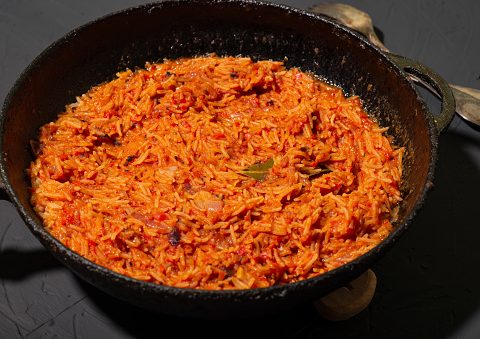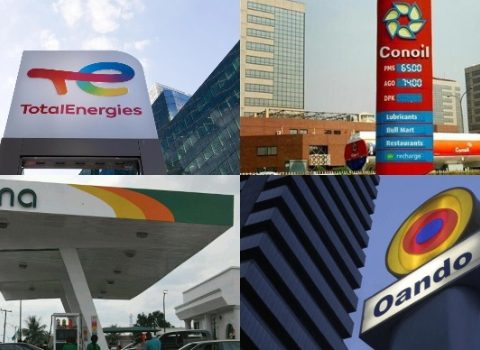The cost of cooking a pot of Jollof Rice has increased by 153% in the last two years, according to the most recent Jollof Index released by SBM Intelligence.
According to the report “From Pot to Poverty,” the average cost of preparing a pot of Jollof Rice in Nigeria has increased from N10,864 in March 2023 to N27,527.85 by June 2025.
Join our WhatsApp ChannelThe increase in price demonstrates how inflation has harmed people’s purchasing power, with a focus on Nigeria and Ghana, two West African countries where the delicacy is widely consumed.
SBM Intelligence has been tracking the cost of Jollof Rice ingredients such as rice, tomatoes, pepper, onions, oil, and seasoning for nearly a decade as a measure of food affordability in Nigeria and Ghana.
The latest findings, however, show a significant difference between food inflation and the broader Consumer Price Index (CPI), implying that rising food costs are now being driven by more entrenched structural issues.
“Food inflation has decoupled from broader Consumer Price Index (CPI) trends, exposing entrenched supply-side challenges,” the report said.
The index reveals significant regional disparities. The cost of Jollof ingredients in Bauchi State, for example, has increased by more than 400 percent as a result of bandit attacks, farmer displacement, and drought. The Northeast experienced some of the highest inflationary pressures, which were exacerbated by insecurity that disrupted agricultural activities and interstate food movement.
READ ALSO: Pot Of Jollof Rice Now Above ₦25,000 – Report
Meanwhile, urban areas such as Lagos and Abuja saw significant increases in food prices due to the elimination of petrol subsidies in 2023, which raised transportation costs. In turn, traders have passed these costs on to consumers, putting additional strain on already stretched household budgets.
In comparison to Ghana, the cost of preparing Jollof Rice increased to GH₵420 during the same period. However, Ghana’s inflationary pressures appear to be easing. Ghana’s headline inflation fell to 16.3% in June 2025, aided by currency stability and consistent macroeconomic policy efforts.
“In Ghana, the Jollof Index closely tracks the national CPI, suggesting a more responsive and effective economic environment,” the company said.
“Nigeria’s disconnect highlights deeper structural dysfunction.” It stated that Nigerian families are adapting by purchasing in bulk, reducing meal frequency, and substituting ingredients, and that for many low-income households, jollof rice is quickly becoming a luxury.
According to the report, food processors, retailers, and logistics providers face increased costs, lower consumer demand, and operational uncertainties.
SBM urged businesses to consider regional sourcing, strengthen their supply chains, and hedge against future currency shocks.
To address the crisis, SBM called for immediate action: restore security in farming regions, improve transportation infrastructure, and increase investment in local agriculture.
It warns that without coordinated policy responses, Nigeria risks worsening food insecurity and social unrest.
“This report offers a granular analysis of food inflation’s drivers and impacts, providing actionable insights for stakeholders,” SBM stated.
It emphasised that prioritising security, infrastructure, agricultural support, and resilient supply chains is critical to ensuring food security and long-term economic stability in West Africa.











